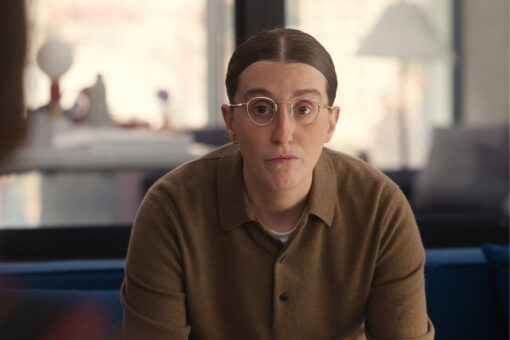I was 19 years old when I decided I wanted to become an Orthodox Jew.
I was raised in a secular Jewish household by non-religious parents. I grew up attending an Orthodox Hebrew school because it was important to my parents that I had a broad understanding of Judaism, even if we did not personally practice. But I wasn’t involved in Judaism for many years between my bat mitzvah and college.
At 18, when I got to college, I was drawn to the social aspects of Jewish life on campus. I attend a big university and getting involved with Hillel seemed like a good way to make friends, but it wasn’t until I turned 19 and met a community of Orthodox women that my religious connection to Judaism became clear.
In my freshman year spring semester, I met someone who today I am lucky to call one of my best friends. We met through a peer mentoring program that we were both involved in and we immediately bonded when she learned I was Jewish. She was the first person to listen to me when I talked about my experiences growing up in an Orthodox Hebrew school and my secular family. Our friendship created space for me to be vulnerable about my desire to become more religious and my feelings about feminism and Orthodoxy.
At the time, I didn’t know how to reckon with the sexism I felt existed in the Orthodox community with my desire to become more religious. I had a difficult time grappling with the intense modesty culture that existed in Orthodoxy, separate gendered seating in synagogue, and the overall gendered religious practice. My new friend talked to me about her own experiences as an Orthodox woman in a way that made me feel that one day, I would feel ready to become more observant. She brought me to the on-campus kosher cafeteria and introduced me to all of her friends, and she really worked to make me feel included. If it wasn’t for her, I would have never felt ready to start going to on-campus Orthodox events.
I finally felt as if I was beginning to connect to being a religious Jew with a deep belief in Hashem during my sophomore year — and then was suddenly torn from my religious community and sent back home to my secular family because of the pandemic. This could have been a time when all the progress I felt I made in connecting to religious Judaism disappeared, but due to the magic that is the internet, I became more observant than I ever was before.
Over quarantine, I met a community of Orthodox Jewish women and other ba’alei teshuvah (people who were raised secular and choose to become Orthodox) online through “frum Twitter,” a magical corner of the internet full of Modern Orthodox Jews. These girls were the first to introduce me to the concept of tzniut, the set of Jewish laws that advise how both men and women can dress and act modestly. When I expressed my interest in slowly transitioning into modest dress, three girls all around my age created a WhatsApp group to help me transition my wardrobe. They sent me links for where to shop, taught me the amazing art of layering, and created a safe and empowering space for all my questions.
By the fall of 2020, I was fully able to commit to tzniut due to the love and support of these girls I met on Twitter. During a period of such isolation, they made me feel incredibly connected and continued to guide me on my journey to becoming religious.
When my campus opened back up and I eventually returned to New York, I finally felt emotionally ready to fully integrate myself into my university’s Orthodox community. To this day, the support these women offer me continues. Whenever I feel frustrated or upset about how lonely coming from a secular family can feel, I have a community of women ready and willing to dole out advice, listen to me complain, and create space for me to cry. After I spent the first days of Passover with my secular family, it was my rebbetzin (rabbi’s wife) who listened to my hardships about the holiday not going as planned and validated my feelings of frustration. When my uncle interrogated me about my feminism as a religious Jewish woman, I had my best friend crack jokes and make me laugh about the situation. When I couldn’t pick a seminary for this upcoming summer, I had a community of women who helped me assess all the possible options. The support I receive from Orthodox women is limitless and created the safety net I have always been searching for.
The truth is, becoming a religious Jew later in life is difficult. There are years of Jewish knowledge that I will always be behind on, secular family members who, even when they try, don’t understand my lifestyle, and friends who don’t want to be in my life anymore now that I am religious. There have been so many times throughout this journey when it would have been easier to give up and continue being a secular Jew, but the frum women around me inspired me to want more than that.
There are still days this life change feels so lonely, but the small moments make it all better. When a girl in the women’s section at minyan tells me she loves my dress, or when I text my group chat to give them the latest dating update, I know that I couldn’t have possibly made the wrong decision. Becoming a ba’al teshuvah is the path of most resistance, but the community of women I have met assures me with every action that I am on the path Hashem has always destined for me.



